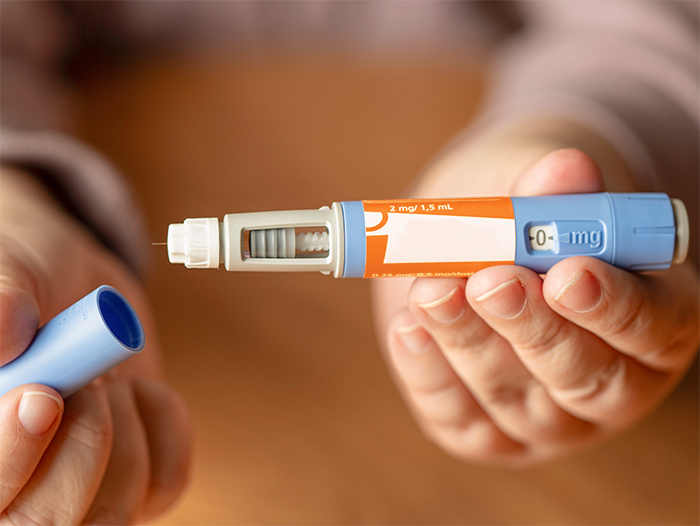Auto logout in seconds.
Continue LogoutEating potatoes isn't the problem — it's the way they're cooked that could increase your risk of type 2 diabetes, according to a study published in the BMJ.
Study details
For the study, researchers analyzed dietary and health data from more than 205,000 U.S. adults who participated in three major longitudinal cohorts: the Nurses' Health Study, Nurses' Health Study II, and the Health Professionals' Follow-Up Study. Participants had no prior diagnoses of type 2 diabetes, cancer, or cardiovascular conditions at the start of the study.
The research team assessed potato consumption — specifically how often participants consumed French fries, baked, boiled, or mashed potatoes — and tracked new cases of diabetes over time. Across more than five-million person-years of follow-up, 22,299 participants were diagnosed with type 2 diabetes.
The study also included a meta-analysis of 10 prospective studies to clarify associations between different types of potatoes, whole grains, and diabetes risk.
French fries stood out as the potato preparation most closely tied to diabetes risk. Eating three weekly servings of French fries was associated with a 20% increase in the rate of type 2 diabetes. People who ate five or more servings per week had a 27% greater risk than those who rarely ate French fries.
By comparison, consuming baked, boiled, or mashed potatoes — even as frequently as seven times a week — was not significantly associated with type 2 diabetes risk. In fact, it was linked to a slight 1% reduction in risk.
"Even a small amount of French fries, less than one serving in the week, is associated with a higher risk of Type 2 diabetes," said research coauthor Seyed Mohammad Mousavi of the Harvard T.H. Chan School of Public Health.
Importantly, the elevated risk linked to French fries remained significant even after accounting for factors like trans fat intake, polygenic risk scores, and body mass index.
Researchers also analyzed what happened when participants swapped out potatoes for other foods. Choosing whole grains instead of French fries three times per week was associated with a 19% lower risk of type 2 diabetes. Replacing them with non-starchy vegetables dropped the risk by 17%.
"[R]eplacing all forms of potatoes—especially fries—with whole grains was linked to a lower risk of type 2 diabetes, whereas swapping them for white rice was associated with the opposite effect," Mousavi said.
Even swapping baked, boiled, or mashed potatoes for whole grains showed a modest benefit, with a 4% drop in diabetes risk. But replacing potatoes with white rice was associated with a higher diabetes risk.
"Brown rice didn't excel as a substitute either," MedPage Today reports.
However, "[m]ost of our participants were white health professionals," Mousavi said. "We need more high-quality data in diverse populations to ensure these findings—and the dietary recommendations based on them—are relevant across different racial and ethnic groups. This is especially important because type 2 diabetes disproportionately affects some communities, including Black and Hispanic Americans."
RELATED resources
- Top drivers of change in the diabetes and obesity market
- Diabetes and obesity care growth forecast: What you need to know
- Could this new stem cell therapy cure type 1 diabetes?
- These 5 foods have bad reputations — but are they actually unhealthy?
- Key considerations for launching an outpatient diabetes program
Commentary
Experts emphasized that preparation method — not just the potato itself — matters.
"Not all potatoes are created equal," Mousavi said. "[T]he way foods are prepared is key to their overall health risks or benefits."
Fried potatoes carry a higher glycemic index and contain added fats, sodium, and potentially harmful compounds from high-temperature cooking. In their analysis, senior author Walter Willett, of the Harvard T.H. Chan School of Public Health, and his colleagues wrote, fried potatoes "not only have a high glycemic index but also contain added fats that have varied over time, salt, and potentially harmful products due to preparation at high temperatures."
Shannon Galyean, assistant professor of nutritional sciences at Texas Tech University, pointed out that while baked potatoes may seem healthier, how people top them can make a difference. "What do people add to baked potatoes? Butter, bacon, cheese, sour cream," Galyean said.
Galyean also noted the importance of potato skins, which contain fiber that supports blood sugar control. "[P]otatoes can be considered a healthy food when you don't fry it, or when you don't add lots of fat to it," she said.
The study period spanned several decades of changing oil use in fast food — from beef tallow in the 1980s to partially hydrogenated oils in the 1990s, and eventually to vegetable oils like canola or sunflower. Still, frying in any of these oils contributed to higher fat content and calories.
"When you fry the potatoes, the energy content — calories — increases because of the fat they absorb," said Candida Rebello, director of the nutrition and chronic disease program at Louisiana State University. "If you eat many servings of French fries, it predisposes [people] to weight gain."
Mousavi's advice: bake or boil potatoes and prioritize other carbohydrate sources like whole grains. "[E]ncourage [patients] to prepare potatoes in healthier ways, like baking or boiling, and to prioritize whole grains as their main carbohydrate source," Mousavi said. "It's also worth stressing that food swaps matter -- replacing potatoes with whole grains can lower risk, while replacing them with white rice may not help."
(Rudd, MedPage Today, 8/6; Bendix, NBC News, 8/6)
Don't miss out on the latest Advisory Board insights
Create your free account to access 1 resource, including the latest research and webinars.
Want access without creating an account?
You have 1 free members-only resource remaining this month.
1 free members-only resources remaining
1 free members-only resources remaining
You've reached your limit of free insights
Become a member to access all of Advisory Board's resources, events, and experts
Never miss out on the latest innovative health care content tailored to you.
Benefits include:
You've reached your limit of free insights
Become a member to access all of Advisory Board's resources, events, and experts
Never miss out on the latest innovative health care content tailored to you.
Benefits include:
This content is available through your Curated Research partnership with Advisory Board. Click on ‘view this resource’ to read the full piece
Email ask@advisory.com to learn more
Click on ‘Become a Member’ to learn about the benefits of a Full-Access partnership with Advisory Board
Never miss out on the latest innovative health care content tailored to you.
Benefits Include:
This is for members only. Learn more.
Click on ‘Become a Member’ to learn about the benefits of a Full-Access partnership with Advisory Board
Never miss out on the latest innovative health care content tailored to you.




